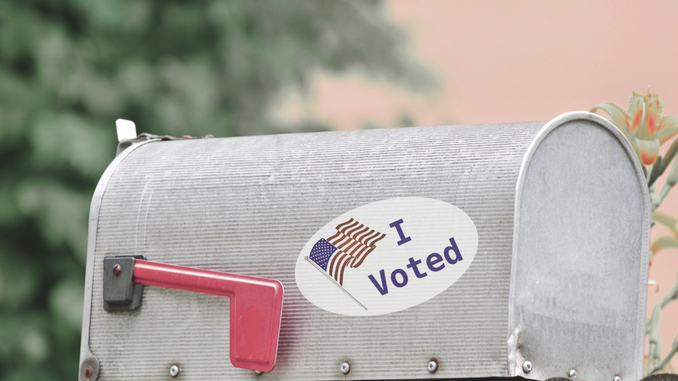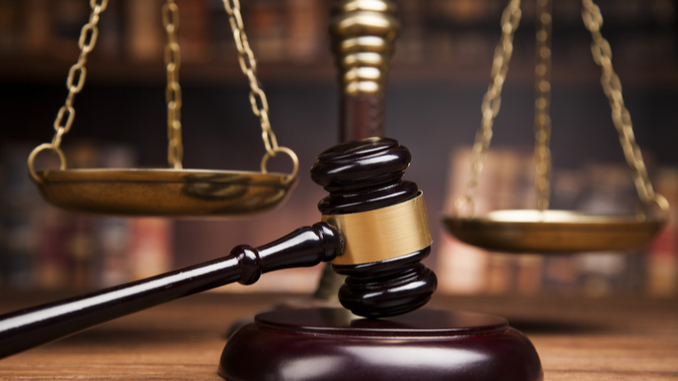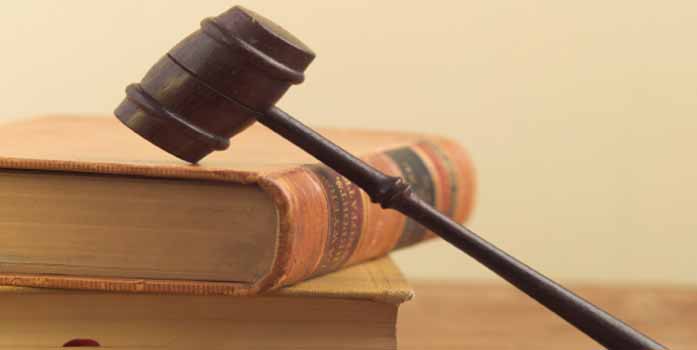
by Daniel Stefanski | May 15, 2023 | News
By Daniel Stefanski |
Arizona taxpayers are going to get some extra cash for the holidays thanks to Republicans giving back from this fiscal year’s budget.
Included in the Fiscal Year 2023 Arizona Budget was the insertion of the Arizona Families Tax Rebate. According to a release from Arizona Freedom Caucus Chairman and Senator Jake Hoffman, “Arizona families can expect to receive one-time tax rebates of up to $750 for qualifying households. Those with dependents under the age of 17 will receive $250 per dependent, or those with dependents 17 and older will receive $100 per dependent, capped at three dependents. Households must have a tax liability of at least $1 in order to be eligible. This criterion is based off of 2021 state tax returns.”
Hoffman explained the motivation for the tax rebate, writing, “Gas, groceries, housing and energy prices have surged over the past three years since Democrats took control of the federal government. As a result, Arizona families are hurting while they attempt to pay for the most basic necessities each month, like putting food on the table, keeping a roof over their heads, paying medical bills, keeping the lights on and filling up their gas tanks. In the meantime, government is flush with cash and in the position to give back to our honest, hardworking taxpayers.”
“This is the first time in at least 30 years our state lawmakers have been able to step up to the plate to provide a tax rebate of this magnitude for our citizens,” said Hoffman. “I’m proud of the leadership of the Arizona Freedom Caucus, and for the support of our Republican colleagues, to dedicate $260 million to helping struggling Arizona families. Despite the current economic uncertainty, the Arizona Freedom Caucus, and conservative Republicans at-large, remain fully committed to keeping Arizona free, vibrant, and prosperous for Arizona families, and all Arizonans, for generations to come. We hope this extra money will make life a little less stressful for our Arizona families as they approach the Christmas holiday season later this year.”
This tax rebate appeared to be the focus of discontentment from some Democrats at the state legislature. Earlier in the week, Representative Oscar De Los Santos took to Twitter to share his thoughts about the recently negotiated budget, saying, “Important context missing from AZ budget debate: Years of massive GOP corporate tax giveaways have resulted in AZ not having the resources – this year & in the future – we need to fund our schools, ensure housing & healthcare for all, solve the water crisis, and more.”
De Los Santos’ charge led Republican Representative Justin Heap to respond: “By ‘corporate tax giveaways’ do you mean the ‘Family Tax Rebate’ that will give every Arizona family with children a check? Leave it to Democrats to characterize giving some of their tax money back to Arizona families as ‘tax giveaway.’ It’s not our money, it’s theirs.”
The pushback from Heap led another Democrat lawmaker, Representative Athena Salman, to add, “That’s false. Your rebate program leaves out families like mine who started and grew our families after 2022. Plus non-tax filers. Go read the bill, it’s short.”
Scot Mussi, the President of the Arizona Free Enterprise Club, told AZ Free News, “we were very pleased to see the budget not only be structurally balanced, but also return nearly $300 million back to taxpayers. That money belonged to hardworking families, and we are glad it’s getting returned to them.”
Daniel Stefanski is a reporter for AZ Free News. You can send him news tips using this link.

by Corinne Murdock | Mar 6, 2023 | News
By Corinne Murdock |
The state is facing a lawsuit filed Monday over an alleged violation of state law with the early ballot signature verification process outlined in the secretary of state’s Election Procedures Manual (EPM). The plaintiffs requested special action relief due to an alleged lack of an equally plain, speedy, and adequate legal alternative remedy for their grievance.
Statute requires that envelope signatures match those on the voter’s registration record. If not, the county recorder must contact the voter and confirm that the voter personally completed and signed the early ballot affidavit.
However, the current EPM — written by Gov. Katie Hobbs in her former capacity as the secretary of state — instructs county recorders to validate early ballot affidavits if they determine the signature matches any signature in any election-related document available to them. The lawsuit argued that the EPM’s allowed materials aren’t legally considered “registration records” and therefore not lawful comparative references for conducting signature validation.
“[T]he signatures encompassed within the EPM’s errant instruction cannot be used either to effectuate the registration of an individual or to lawfully amend an existing registration,” stated the lawsuit.
Arizona law doesn’t explicitly define the term “registration record.” However, the lawsuit argued that the natural understanding of the term relates to a document effectuating or amending voter registration that contains voter-supplied information required by federal and Arizona law, as well as a signed certification attesting to the provided information.
“A properly executed and submitted registration form, as may be amended and updated by the registrant from time to time, ‘constitute[s] an official public record of the registration of the elector,’” stated the lawsuit. “Accordingly, the ‘record of the registration of the elector — i.e., her “registration record,” consists of the complete and facially valid federal and state forms submitted by that individual, and any amendments thereto made by the submission of new forms, an early ballot request form, a response to an Active Early Voting List notice, or a provisional ballot envelope.”
Citizens may register to vote using forms provided by the federal or state government; both forms require full name, residential address, date of birth, a government-issued ID number, political party affiliation if applicable, and a signed, sworn attestation of eligibility (including U.S. citizenship). An Arizona voter registration form also requires telephone number, location of birth, occupation, father’s last name or mother’s maiden name, age, proof of citizenship, and statements affirming residency, status of any other existing registration, and any absence of disqualifying felony conviction.
The lawsuit stated that the named defendant, Secretary of State Adrian Fontes, has gone beyond his lawful jurisdiction and gone against statute by upholding Hobbs’ EPM. Fontes refused to heed lawmakers’ requests to reject Hobbs’ EPM earlier this year.
Plaintiffs in the lawsuit are the Arizona Free Enterprise Club (AFEC), a nonprofit social welfare corporation specializing in limited government that includes election integrity; Restoring Integrity and Trust in Elections, a Virginia-based nonprofit social welfare corporation specializing in election integrity; and Dwight Kadar, a Yavapai County resident and elector.
AFEC President Scot Mussi told AZ Free News that Hobbs’ EPM essentially rewrote state law to make invalid voting easier.
“The current election procedures manual adopted by the Secretary of State has rewritten state law regarding signature verification for mail-in ballots,” said Mussi. “The result is a process that invites questionable methods and opportunities for abuse during the signature review process. It’s time for the courts to bring this illegal EPM practice to a halt.”
Early ballot voters aren’t required to prove their identity through documents or additional personal information, like a birthdate or Social Security number. The sole validator for early ballot voters is the affidavit form signature on the exterior of the envelope housing the ballot. By signing the affidavit form, a voter attests under penalty of perjury that he has not voted and will not vote in any other jurisdiction, that he has registered to vote in the correct county, that he understands that multiple voting is a felony, and that he personally voted the ballot enclosed and signed the affidavit.
Corinne Murdock is a reporter for AZ Free News. Follow her latest on Twitter, or email tips to corinne@azfreenews.com.

by Corinne Murdock | Jan 11, 2023 | News
By Corinne Murdock |
A proposition intended to provide transparency to certain, alleged dark money networks may result in more danger for certain nonprofits.
The Arizona Free Enterprise Club (AFEC) says it’s faced threats of violence and endured vandalism last year, and expressed concern that Prop 211, the Voters’ Right to Know Act, would exacerbate these issues.
AFEC President Scot Mussi told AZ Free News that some of the threats of intimidation were so severe that they filed police reports. Mussi said that the forced disclosure of the names, addresses, occupations, and identities of employers for any donors who gave over $5,000 to them would be subject to the same evils they face.
“Our supporters should be able to exercise their speech rights without fear of harassment or intimidation,” said Mussi.
Mussi predicted that Prop 211 would result in donors enduring retaliation and harassment. He pointed out that the proposition lacked substantive protections, except a provision protecting individuals from a “threat of physical harm.” However, Mussi was skeptical that the provision had any teeth for most organizations, save for the wealthy and powerful.
Any group or entity that spends over $50,000 on campaign media spending in a statewide race or $25,000 in any other race must adhere to those disclosure requirements. The top three donors for that cycle must also be disclosed, even if their funds weren’t used for campaign media spending.
Campaign media spending includes any public communications promoting, supporting, attacking, or opposing a candidate within six months of an election; referring to a candidate 90 days before a primary election; or even researching, designing, or producing content in preparation for public communication about a candidate. This expansive definition would include blog posts, articles, press releases, or social media posts.
Mussi told AZ Free News that the forced disclosure was tantamount to doxxing. He said the disclosures are a “well-known tactic” to silence dissent, referencing the ousting of Mozilla CEO Brendan Eich after he donated to fund a California initiative declaring that marriage belongs between a man and a woman.
As a result of these concerns, AFEC filed a lawsuit to overturn Prop 211 last month. The nonprofit insists that First Amendment free speech protections also afford the right to not be forced to speak.
READ THE AFEC LAWSUIT HERE
Joining AFEC is the Center For Arizona Policy (CAP), a conservative nonprofit, represented by the Goldwater Institute. The named defendants include Governor Katie Hobbs in her former capacity as secretary of state, as well as the Arizona Clean Elections Commission.
In a press release, Goldwater Institute (GI) Senior Attorney Scott Day Freeman stated that Prop 211 would force donors to choose between supporting causes and organizations they believed in or having their donations and private information publicized on a government list.
“The result will be less free speech, more harassment, and an uglier political discourse,” stated Day Freeman.
As AZ Free News reported, Prop 211 provides neat carveouts for primary sources of leftist dark money: corporate media, Big Tech, labor unions, and “nonpartisan” PACs, for example.
The main financier of the measure, David Tedesco, is the founder and CEO of the Phoenix-based venture capitalist firm, Outlier. The leader of the effort was Terry Goddard, the state’s former Democratic attorney general. Both men told The Washington Post that they disagreed with characterizations of Prop 211 by AFEC, CAP, and GI.
Tedesco also pushed back against the Wall Street Journal editorial board opinion opposing the proposition.
“Transparency and sunshine are happy words, but in reality disclosure laws have become a weapon used by the left to intimidate conservatives from engaging in politics. Groups trawl records for names and then organize social-media campaigns to harass and discourage donors,” wrote the board. “Americans looking to participate in campaigns can, and often do, see their names dragged through the mud. Many donors decline to engage, and political speech is chilled before it even happens.”
Tedesco rebutted that Prop 211 doesn’t present a free speech threat because it was backed financially by registered independents and Republicans. He said that voters had a right to know any financial sources behind free speech.
Corinne Murdock is a reporter for AZ Free News. Follow her latest on Twitter, or email tips to corinne@azfreenews.com.

by AZ Free Enterprise Club | Dec 18, 2022 | Opinion
By the Arizona Free Enterprise Club |
In this past November’s election, Arizona voters were misled into passing Prop 211. Billed as the “Voters’ Right to Know Act” that’s supposed to “Stop Dark Money” in our state, it sounds harmless enough. But that was all a part of the clever messaging from its campaigners—like former Arizona Attorney General Terry Goddard—to scare the average person into voting “yes.”
Unfortunately, it worked. But Prop 211 is unconstitutional, and that’s why the Arizona Free Enterprise Club, in partnership with the Center for Arizona Policy and the Goldwater Institute, filed a lawsuit to stop the Act from being enforced…
>>> CONTINUE READING >>>

by Terri Jo Neff | Dec 16, 2022 | News
By Terri Jo Neff |
A civil rights lawsuit has been filed by two Arizona nonprofits in hopes of having the recently passed Voters’ Right To Know Act aka Proposition 211 declared unconstitutional.
The Arizona Free Enterprise Club (AFEC) and the Center for Arizona Policy have joined forces to seek a preliminary injunction barring implementation of Prop 211 while the case is litigated. The groups are represented by the Scharf-Norton Center for Constitutional Litigation at the Goldwater Institute.
In announcing Thursday’s lawsuit, AFEC issued a statement which argues that Arizona voters “were misled into passing Prop 211” by supporters like former Arizona Attorney General Terry Goddard who railed against the vague threat of “dark money” in the state’s elections.
Prop 211 received more yes votes than no votes in all 15 counties, and easily passed by more than 1 million votes. But the plaintiffs insist the new law jeopardizes and interferes with the right of all Americans to freely support campaigns and causes in Arizona without being intimidated.
The Voters’ Right To Know Act requires all entities and persons spending more than $50,000 in “campaign media spending” on statewide campaigns (or $25,000 on other campaigns) excluding personal monies and business income to disclose the original donors of any contribution over $5,000.
The Act involves the disclosure of those donors’ names, mailing addresses, and occupations. It also requires disclosure of the identities of those donors’ employers.
“This is just another attempt to target, harass, and dox conservatives who won’t submit to the Left’s agenda,” the AFEC statement reads. “And if you don’t think this happens, think again.”
The statement notes the experiences of its own staff “who have received numerous phone calls and voicemails threatening violence—including one staff member whose car was vandalized for engaging in public communications on our behalf.”
As required by state law, the Plaintiffs were required to provide notice to the Arizona Attorney General, the Speaker of the Arizona House of Representatives, and the President of the Arizona Senate that they are seeking to have Prop 211 declared unconstitutional.
There is recent precedent for the legal arguments put forth by the Goldwater Institute for the plaintiffs. A U.S. Supreme Court decision last year in Americans for Prosperity v. Bonta struck down a similar law in California on the grounds that the First Amendment protects the freedom to anonymously support organizations and nonprofits.
A central theme of the Arizona lawsuit against Prop 211 is the guarantee in the state Constitution that citizens have the right to speak freely, a right even broader than what is guaranteed under the First Amendment of the U.S. Constitution.
The lawsuit notes the Arizona Constitution expressly guarantees that an individual’s “private affairs” will not be disturbed, particularly those that pertain to financial information and one’s choices when casting a ballot.
“Transparency is for government; privacy is for individuals,” the lawsuit argues.
Another problem with Prop 211, according to the lawsuit, is its definition of campaign media spending to include any public communication which “promotes, supports, attacks, or opposes” a candidate within six months of an election or “refers” to a candidate 90 days before a primary election.
That overly broad language means any article, blog, or social media post by groups like AFEC or Center for Arizona Policy about something as commonplace as a vote by a lawmaker could trigger compliance with the new law if that lawmaker is running for office or opts to soon after the communication.
“And if you think that by simply avoiding traditional campaign media spending (sending out a mailer, airing a TV commercial, etc.) will protect you from Prop 211, think again,” the AFEC statement notes. That is because the new law applies to all “research, design, production…or any other activity conducted in preparation for” a public communication about a candidate.
“Since writing articles and producing social media posts have a cost, we would have to calculate and regularly track how much staff time and office resources are used to produce these materials,” the statement notes.
Such an onerous level of accounting would force AFEC to drastically limit its public communications—even if a communications are not campaign related—“to avoid the absurd dragnet and complex regulatory labyrinth established by this Act,” the group noted.
Joining AFEC and Center for Arizona Policy as plaintiffs are “Plaintiff Doe I” and “Plaintiff Doe II,” both described as Arizona citizens and Maricopa County residents. The Doe plaintiffs allege that it is unconstitutional to require them to “reveal his or her identity when donating to charitable organizations that engage in public communications supporting issues and candidates” the two support.
Their lawsuit has been assigned to Judge John Hannah of the Maricopa County Superior Court. The defendants include Arizona Secretary of State Katie Hobbs as well as the Arizona Clean Elections Commission, its executive director, and its five commissioners.
It is the Clean Elections Commission which is tasked with establishing and interpreting the new standards outlined in Prop 211. The Commission has often been at odds with AFEC in past ballot initiatives and litigation, including one case in which the U.S. Supreme Court significantly reduced the Commission’s power.
Terri Jo Neff is a reporter for AZ Free News. Follow her latest on Twitter, or send her news tips here.





